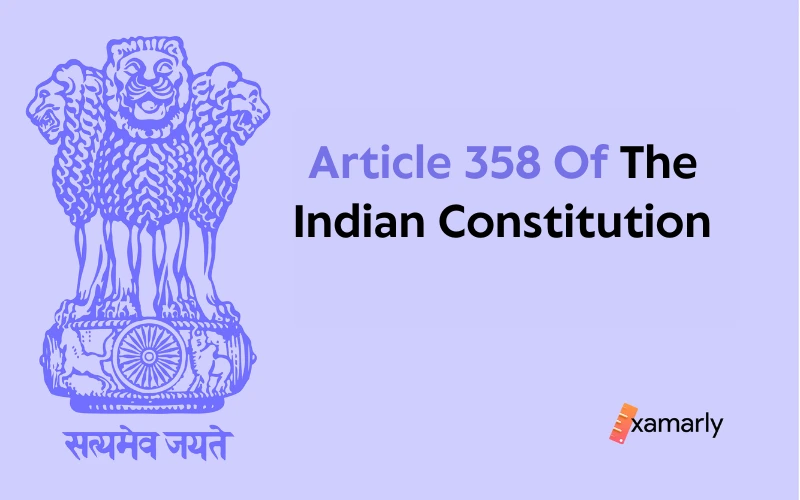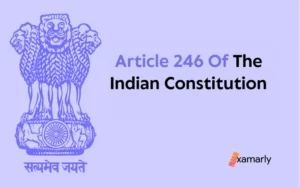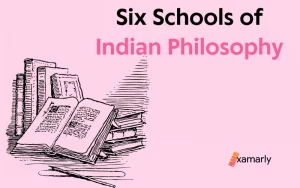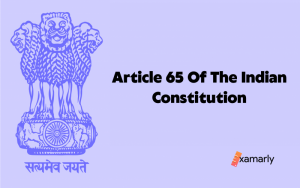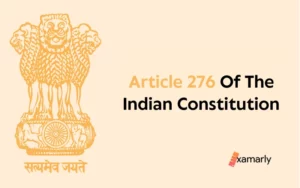When the nation is under threat, the government may invoke Article 358 of the Indian Constitution to suspend our fundamental rights. But which fundamental rights will be suspended under Article 358?
Part III of the Indian Constitution contains the Articles from 14 to 35 whose provisions revolve around the Fundamental rights of the citizen.
This page will cover Article 358 and will help you to figure out the provisions of which Article of the Indian Constitution will be suspended under the said Article.
- Article 358 Of The Indian Constitution
- National Emergency
- Suspension Of Fundamental Rights Under Article 19
- Conclusion
- FAQs On Article 358
- What Is Article 19 Of The Indian Constitution?
- In Which Part Of The Indian Constitution Article 358 Is Contained?
- What Is Article 358 Of The Indian Constitution?
- How Many Types Of Emergency Are There Under The Constitution Of India?
- What Is The Difference Between Articles 358 And 359 Of The Indian Constitution?
Article 358 Of The Indian Constitution
In the event of an emergency, the provisions of article 19 can be suspended in pursuance of the provisions of article 358 of the Indian Constitution. Its Constitutional provisions are as follows:
- Nothing in Article 19 shall limit the power of the State, as defined in Part III, to make any law or to take any executive action that the State would be competent to make or to take but for the provisions contained in that Part while a Proclamation of Emergency declaring that the security of India or any part of its territory is threatened by war or by external aggression is in effect. However, any law thus made shall, to the extent of the incompetency, cease to be in force immediately upon the expiration of the Proclamation, save as to actions done or omitted to be done before to the law’s so ceasing to be in force:
Provided, however, that when such Proclamation of Emergency is only in part of India’s territory, any such law or executive action may be adopted or taken under this article in respect to or in any State or Union territory in which or in any portion of which the Proclamation of Emergency is not in effect, if and to the extent that the security of India or any part of its territory is jeopardized by activities in or related to the part of India’s territory where the Proclamation of Emergency is in effect. - Nothing in clause (1) shall apply—
- (a) to any law that does not include a recital to the effect that such law is in connection to the Proclamation of Emergency in operation when it is formed;
- (b) to any executive action undertaken other than in accordance with law including such a recital.
Note: Article 358 was amended by the 42nd constitutional amendment and 44th constitutional amendment of India.
National Emergency
In accordance with Article 352 of the Constitution, the country may declare a national emergency in the event of a crisis that could jeopardize its administration, security, and peace.
The provisions of Article 358 come into play when a Proclamation of national emergency is in operation in the country. In such a situation, the right to move any court for the enforcement of the rights conferred by Part III shall remain suspended for the period for which the Proclamation is in force, or for a such shorter period as may be specified in the Proclamation. However, the article also specifies that the right to life and personal liberty, which is guaranteed under Article 21 of the Constitution of India, shall not be suspended under any circumstances.
Relatable Articles:
| Article 20 of the Indian Constitution | Article 359 of the Indian Constitution |
| Article 360 of the Indian Constitution | Article 254 of the Indian Constitution |
Suspension Of Fundamental Rights Under Article 19
Article 358 states that the six Fundamental Rights guaranteed in Article 19 of the Indian Constitution are immediately suspended whenever a declaration of national emergency is made.
It is not necessary to issue a separate order to suspend them at this time.
During the duration of a national emergency declaration, the state is immune from the limitations established by Article 19.
To put it another way, the state has the power to pass any legislation or take any administrative action that limits or negates the six fundamental rights that are secured by Article 19.
Such laws and executive orders cannot be contested on the grounds that they infringe upon the six Fundamental Rights protected by Article 19 of the Constitution.
As soon as the state of national emergency is lifted, Article 19 will immediately become operational again and go back into effect.
Any law that was passed during the State of Emergency that is in direct opposition to Article 19 is null and invalid.
Despite the fact that the state of emergency has been lifted, there is no recourse available for anything that took place during the state of emergency.
Consequently, after the emergency has ended, the legality of legislative and executive measures performed during the emergency cannot be contested.
By enacting the 44th Amendment in 1978, the scope of Article 358 was restricted in two different ways.
When a state of national emergency is declared owing to war or external aggression rather than armed revolt, the six Fundamental Rights that are inscribed in Article 19 are subject to suspension.
Other laws are not shielded from being challenged; only those relating to the Emergency are.
Additionally, only executive actions carried out in compliance with such a statute are shielded.
Conclusion
Article 358 of the Indian Constitution gives the government the power to suspend certain fundamental rights (covered in Article 19) during a period of emergency. While such measures may be necessary for certain circumstances, it is important to ensure that they are carefully balanced against the need to protect the rights and freedoms of citizens.
FAQs On Article 358
What Is Article 19 Of The Indian Constitution?
Article 19 of the Indian Constitution grants the people who live in India certain fundamental rights. When a national emergency occurs, these rights are suspended. Both Article 358 and Article 359 provide the state governments and the President of India with the authority to make decisions and put those decisions into effect that suspend Fundamental Rights.
In Which Part Of The Indian Constitution Article 358 Is Contained?
Part XVIII titled “Emergency Provision” enshrined Article 358 of the Constitution of India.
What Is Article 358 Of The Indian Constitution?
According to Article 358, the fundamental rights under Article 19 shall be suspended during a national emergency. The fundamental rights guaranteed by Articles 20 and 21 won’t be impacted, though, in any scenario.
How Many Types Of Emergency Are There Under The Constitution Of India?
There are three types of emergency provided for under the Constitution of India: national emergency, state emergency, and financial emergency. Each type of emergency is triggered by specific circumstances and confers specific powers on the President of India to deal with the emergency situation.
What Is The Difference Between Articles 358 And 359 Of The Indian Constitution?
During times of war or external aggression, but not during armed rebellion, the state government is granted the ability to suspend the Fundamental Rights under Article 358 of the Constitution. The President is given authority under Article 359 to suspend fundamental rights in certain situations, including war, external aggression, armed rebellion, financial catastrophe, and more.


